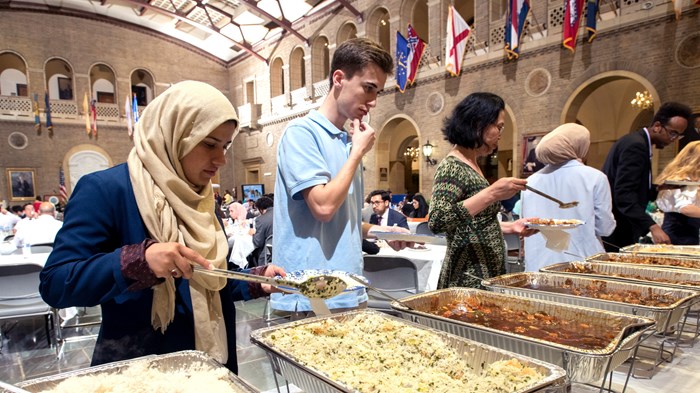
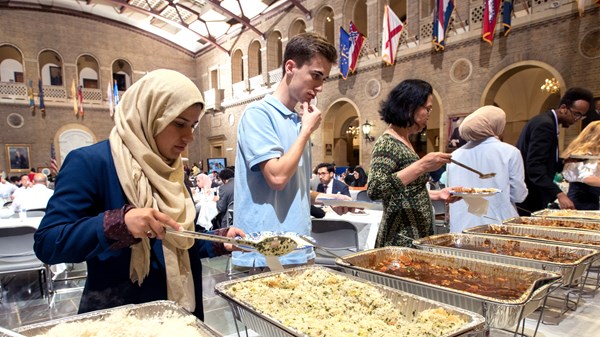
As much of American society undergoes a secular shift, most Muslims and Christians continue to attend worship, adhere to tenets of their traditions, and proudly identify with their faiths.
But despite this shared sense of religious devotion, as detailed in a new Pew Research Center report on what US Muslims believe and practice, survey data also show a huge gap in their perceptions of each other.
While Americans overall have warmed up to Muslims in recent years, white evangelicals express more concerns about US Muslims than any other religious group. Two-thirds of white evangelicals believe Islam is not part of mainstream American society and contend that it encourages violence more than other faiths, according to Pew.
Meanwhile, 72 percent of white evangelicals—compared to 44 percent of Americans overall—see a natural conflict between Islam and democracy. And 30 percent of Muslims themselves agree that the two are in conflict.
A small minority of Americans (6%) and Muslims (5%) attribute the tension to the belief that America is a Christian nation.
As CT reported in March, missions experts worry that evangelicals’ views of Muslims are sabotaging a long-dreamed-of moment. Previous research by Pew found that only 35 percent of white evangelicals say they have a personal connection to a Muslim, compared to about 40 percent of mainline Protestants and Catholics, 50 percent of unaffiliated Americans, and 73 percent of Jews.
“This is the best chance we’ve had in human history to share the love of Christ with Muslims,” said David Cashin, intercultural studies professor at Columbia International University and an expert in Muslim-Christian relations. “Because of these attitudes, we could miss the opportunity.”
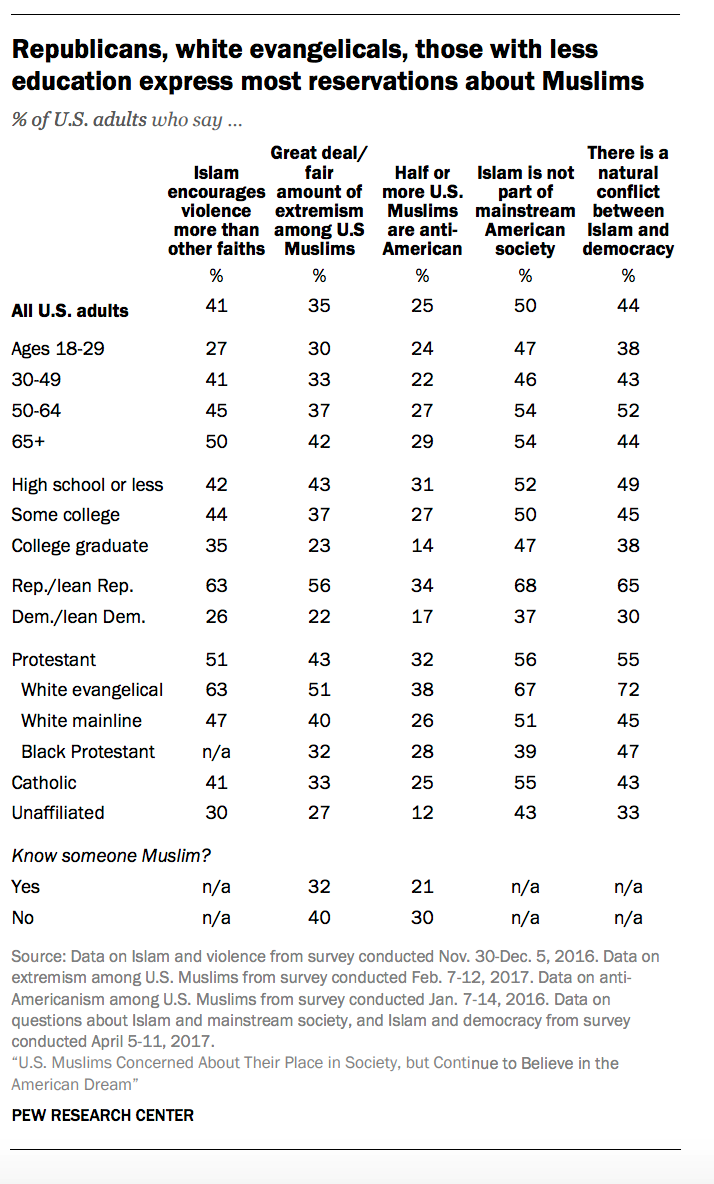
A majority of Muslims in the Pew report believe that the rest of America does not see them as part of mainstream society (62%) and indicated they were worried about President Donald Trump (68%), whose immigration policy has targeted people from certain Muslim-majority countries. In surveys, evangelicals have largely approved of Trump’s approach, though many prominent evangelical leaders have spoken out against it.
Pew found that Muslim Americans are just as concerned as Americans at large about extremism in the name of Islam in the US (71% vs. 70%) and around the world (82% vs. 83%). Half of white evangelicals believe there is a “great deal” or “fair amount” of extremism among US Muslims.
Evangelicals are slightly more likely than Muslims (14% vs. 12%) to agree that it is often or sometimes justified to target and kill civilians in order to further a political, social, or religious cause. (Also in agreement: 19 percent of black Protestants, 16 percent of Catholics, and 14 percent of all Americans.)
Half of Muslims in the US say they have experienced discrimination over the past year, Pew reports. More than twice as many Americans say Muslims face a lot of discrimination (75%) in the US than believe evangelicals do (29%). Half of Muslims also say that being Muslim in the US has gotten more difficult. The top reasons: Muslim extremists in other countries (cited by 24%), followed by negative media portrayals (cited by 17%).
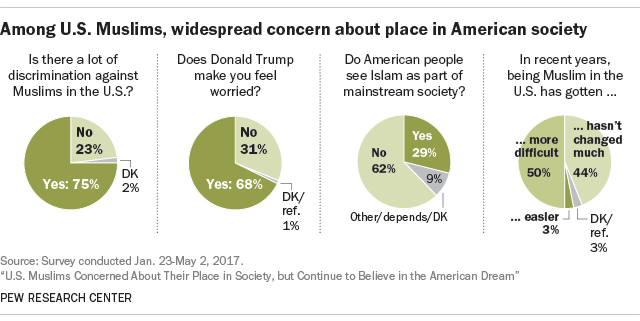
On paper, American Muslims and American Christians have similar levels of religious commitment. Pew reports:
On average, the two groups show roughly equal levels of religious commitment. About two-thirds of US Muslims (65%), for instance, say religion is very important in their lives, as do 68% of Christians, according to Pew Research Center’s 2014 Religious Landscape Study.
And 43% of Muslim Americans say they attend a mosque on a weekly basis, on par with the 45% of US Christians who have described themselves as weekly churchgoers in recent surveys.
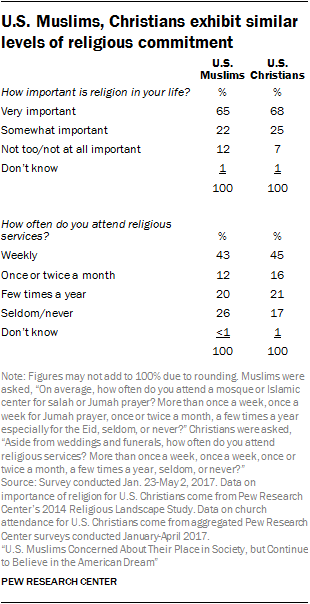
About 85 percent of Christians and Muslims say belief in God is essential to what their faith means to them, reports Pew. Meanwhile, its latest survey found that only 6 in 10 US Muslims say that following the Qur‘an is essential to their faith, and only 5 in 10 say that eating halal food is essential.
Points of potential encouragement for concerned US Christians: 52 percent of US Muslims say “traditional understandings of Islam need to be reinterpreted,” and 64 percent say there is “more than one true way” to interpret Islam.
Michael Urton, associate director of the Coalition of Ministries to Muslims in North America (COMMA Network), said he has seen meaningful relationships built on that common ground between evangelicals and the Muslim families in the Chicago suburbs where he lives.
“They are so used to dealing with a secular mentality that it’s refreshing” for them to be around others who also take their faith seriously, he said.
Conversion and interfaith marriage among US Muslims have remained relatively stable: 1 in 5 Muslims in America is a convert, with 53 percent joining the faith from a Protestant background and 20 percent from a Catholic background, according to Pew.
Meanwhile, 1 in 10 American Muslims have a Christian spouse, as do 1 in 5 of those whose Islamic faith is less important to them.
Earlier this year, CT covered new demographic projections showing that Muslim births will outpace Christian births globally by 2035.

Support Our Work
Subscribe to CT for less than $4.25/month




















